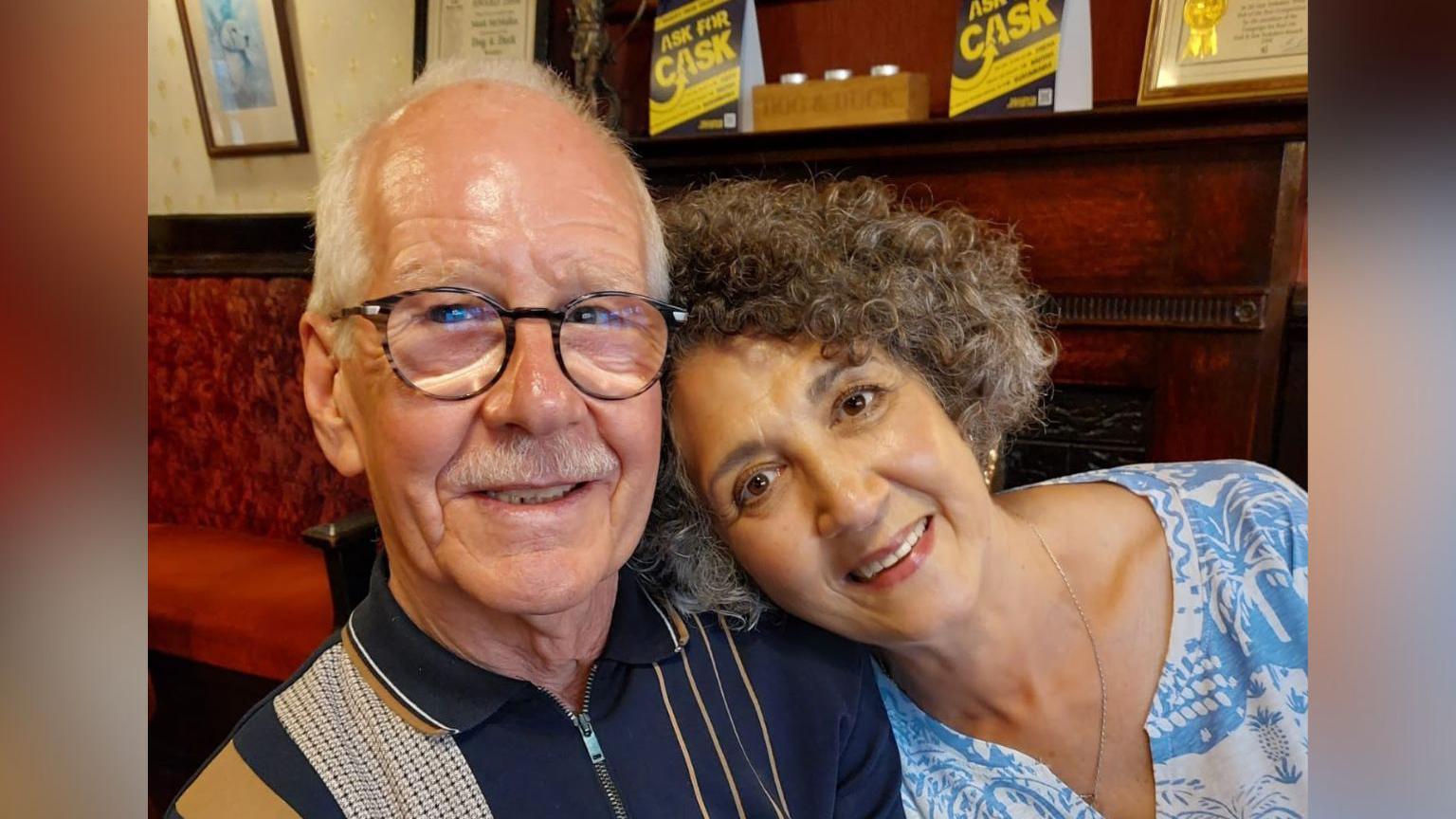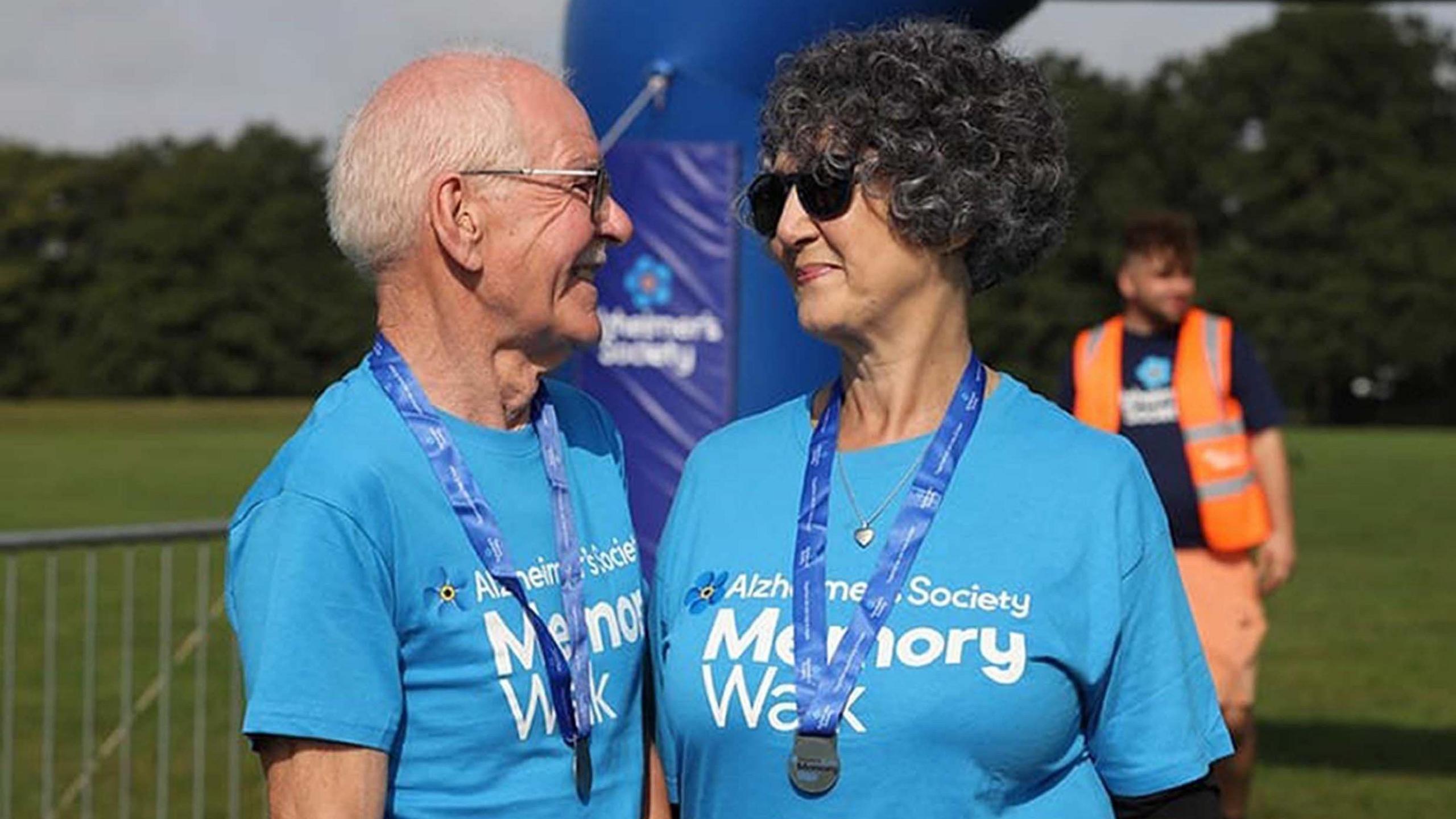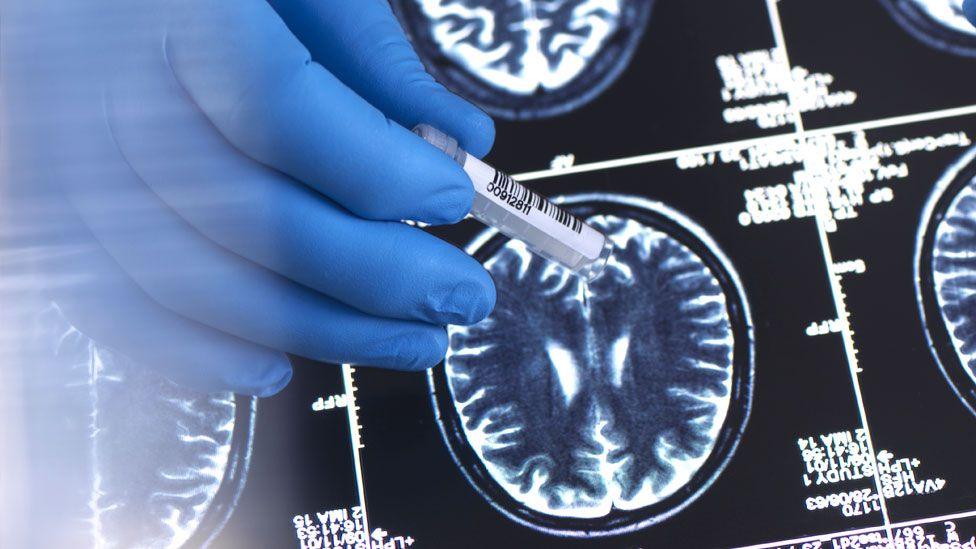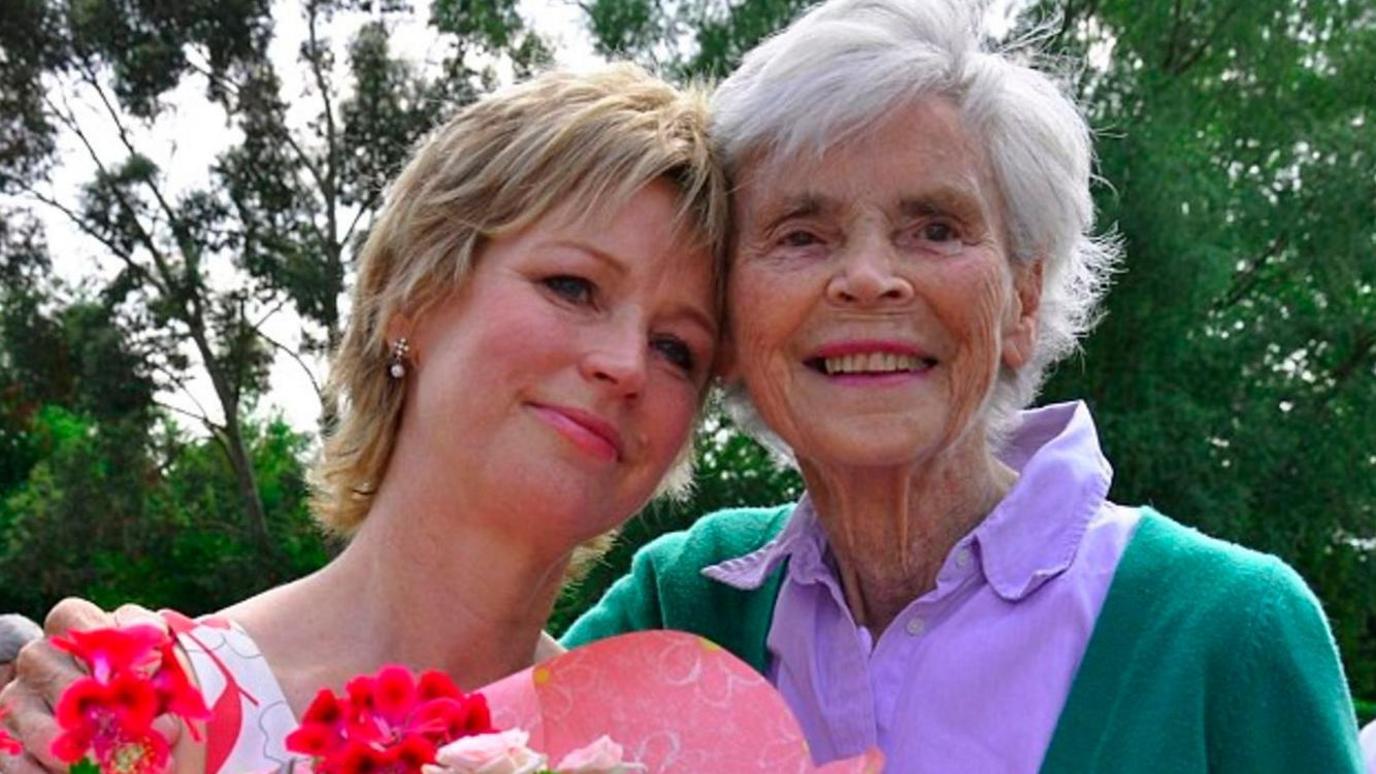'Alzheimer's drugs will come too late for us'

Elaine and Brian Windass hope dementia drugs, such as Donanemab, will be funded to support patients in the future
- Published
A couple from Hull have called on the government to fund new Alzheimer's drugs, even though they say it will come "too late" to help them.
Elaine Windass, whose husband, Brian, was diagnosed with Alzheimer's Disease in 2022, said she hoped future generations would benefit from the treatments, if they are able to be prescribed by the NHS.
Mrs Windass said: "By the time the NHS decide to give it out, it will be too late for people like Brian, but it would help future generations."
The National Institute of Health and Care Excellence (NICE) has ruled out funding one drug, Donanemab, stating it would not be a good use of taxpayers' money, despite it being licensed in the UK.

Mr Windass, 76, began to show symptoms in 2021. He was diagnosed in August 2022
Mr and Mrs Windass hoped the drugs would eventually be made available on the NHS for future generations to access.
Mrs Windass said: "Brian and I now feel that its too late for us. Brian's father had Alzheimer's, Brian has it, and we worry about our two sons and grandchildren as well.
"I just think people should be able to get it and not have to pay privately."
Mrs Windass, a former GP surgery receptionist who also works on a dementia unit, added: "Attending Alzheimer's Society's memory cafe in Hull has been a godsend. Talking to others who are in the same boat really helps."
Mr Windass said: "We just talk about different things, how they am, how I am.
"I just take one day at a time."

Donanemab works by removing a protein called beta-amyloid from the brain, which is believed to cause Alzheimer's disease
Prof Fiona Carragher, chief policy and research officer at Alzheimer's Society, said disease-modifying therapies like Donanemab and Lecanemab "offer a new horizon of hope in the fight against dementia".
She said that while they respect NICE's decision not to fund the drug, she described the move as "disheartening".
Ms Carragher added: "In other diseases like cancer, treatments have become more effective, safer and cheaper over time and we hope to see similar progress in dementia."
NICE said Donanemab provided only a small benefit to patients, and was five-to-six times more expensive than the NHS normally considers acceptable.
"This is just not enough benefit to justify the additional cost," said Helen Knight, director of medicines evaluation at NICE.
"I know this will be disappointing news, but this is an emerging field of medicine and there are other treatments being developed."
Listen to highlights from Hull and East Yorkshire on BBC Sounds, watch the latest episode of Look North or tell us about a story you think we should be covering here, external.
Related topics
- Published23 October 2024

- Published11 October 2024

- Published22 August 2024
